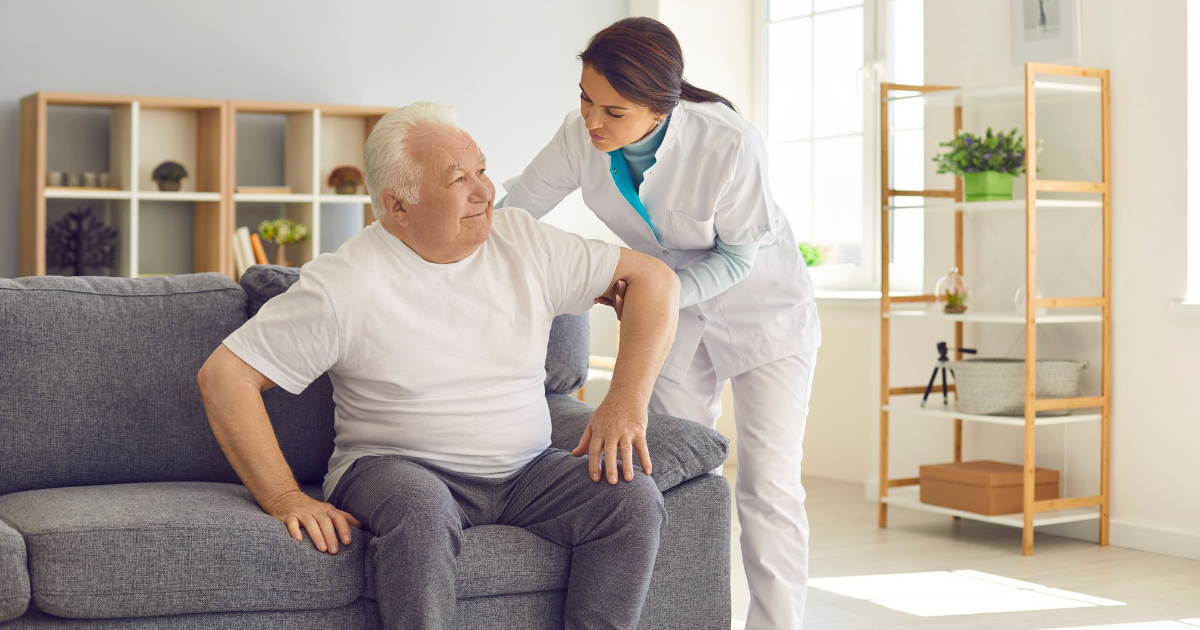Your first day being the primary source of care for a family member is much like your first day of a new school year probably was when you were growing up – riddled with anxiety and doubt. They’re not situations you can do a lot to prepare for, and they’re emotionally challenging.
We applaud you for your courage in accepting the challenge of caring for a loved one, and we offer you these six tips as a first-time caregiver to help your journey down this path go smoothly.
Tip #1: Encourage independence
Though you’re now providing some elements of their personal care, an adult aging at home should be encouraged to do as much as they can for themselves, as long as it’s safe for them to do so. By allowing them to perform some of their daily routines, they’ll feel more independent, and it will take some of the pressure off of you.
As time passes, they may be relying more on you to help them with day-to-day activities, but keep encouraging them to do what they can.
Tip #2: Learn First Aid
There may come a time when immediate medical attention is required. You’ll find first aid and CPR classes available through local organizations, including the American Red Cross. Putting this off is easy to do, so hop online or make a call and get scheduled today.
Tip #3: Use technology when you can
There are many tools available that will help you as a caregiver:
- GPS technology to tell you your loved one’s exact location
- Apps that help you track medical appointments, health records, insurance information, and more
- Medication reminders that alert you when your senior has forgotten to take a prescription
- Personal Emergency Response Systems (PERS) allow your loved one to press a button and summon help in case of an emergency
- Wireless home monitoring systems that alert you in case of an emergency or when something unusual has happened, like a senior not leaving the bathroom for an extended period of time
Check and see if some of these can be paid by your loved one’s personal health insurance, long-term care insurance, Medicare, or Medicaid.
Tip #4: Educate yourself
The more you know about any physical or mental disorders your loved one has, the better. It allows you to communicate more efficiently and effectively with their healthcare providers and helps you to provide the best care possible. There is an endless amount of information available for you online, and your loved one’s doctors can also be an excellent source of helpful information.
Tip #5: Stay organized
Keeping all important contact numbers and details of medication handy will make life easier for you as a caregiver. Keep important numbers by the home phone and program them into your smartphone and that of your family member, if they have one. Medications they take can also be listed on paper or kept in the Notes section of your phone,
Tip #6: Take care of your personal needs
Caregiving can wear you down, physically and mentally. The last thing you want to experience is “caregiver burnout,” where you’re personally depleted physically, mentally, and emotionally to the point where you can no longer care for your loved one.
Schedule regular breaks to care for your own needs. Respite care is available from professional home care agencies like Seniors Prefer Homecare. We can step in when you need a break.
You Don’t Have to Do This Alone
You can rest easier knowing that Seniors Prefer Homecare is here for you when you need us. We provide superior senior home care in Huntsville and Tuscaloosa, and we’re available 24/7.
You can contact us anytime. We can help for a couple of hours a day, around the clock, or just when you need us. We’re fully licensed and insured, and all of our caregivers are carefully screened and highly qualified.

